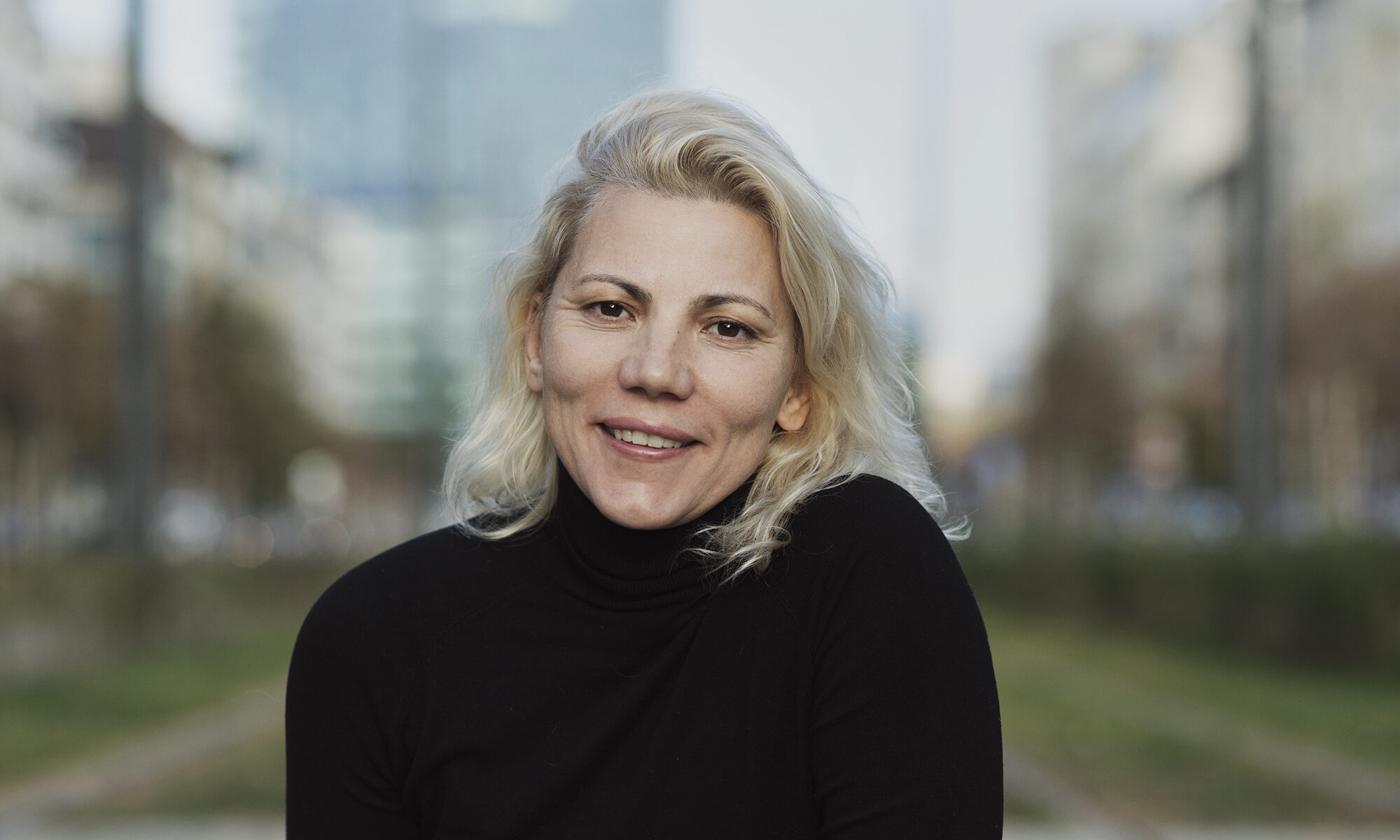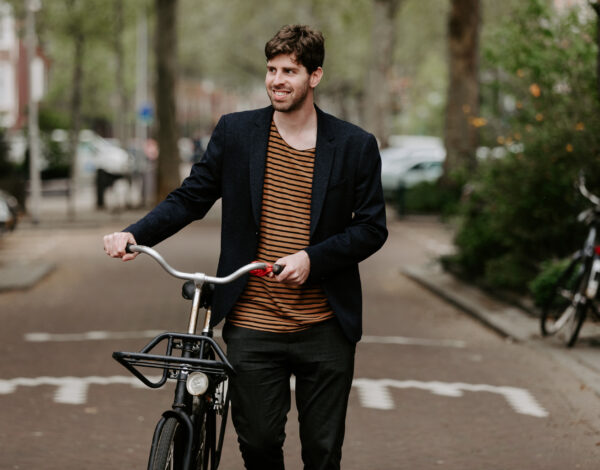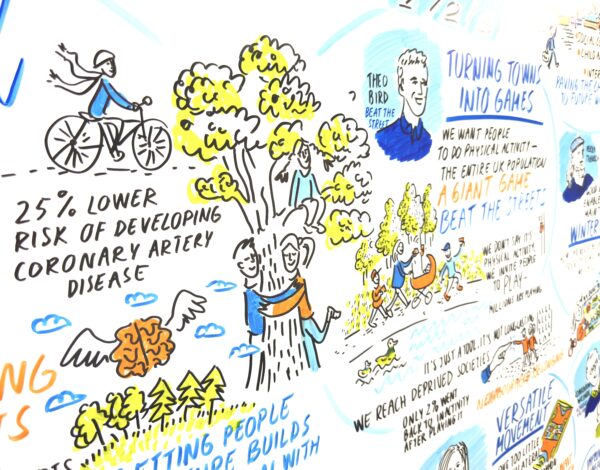Laska Nenova is an experienced placemaker and co-founder of BG Be Active Association and Urban Nudges. She works in a wide spectrum of projects creating more social, active and recreational public places through different, cross-sectional partnerships. She has also led various initiatives such as No Elevators Day and European School Sport Day.
Tell us a little bit about yourself
For the past year, I’ve been on a path of rediscovery so the question is a tough one but still, here we go: I am Bulgarian and I reside in the oldest continually inhabited city in Europe – Plovdiv – a city that continues to evolve and develop. People have lived in Bulgaria’s second-largest city for 8,000 years.
I’m currently advancing my studies with a master’s in public health and health management, having previously studied business administration and international trade. In terms of professional titles – I currently identify myself as a social entrepreneur, striving to enhance our cities through the perspectives of placemaking and urban health and I have expertise in social and cause marketing.
I am the founder of the BG Be Active Association, a non-governmental and non-profit organization based in Bulgaria, and I’m a co-founder of Urban Nudges, an agency dedicated to creating and disseminating solutions to common urban challenges providing small, subtle changes in the physical environment of cities that aim to encourage people to make more desirable choices. These changes can include things like adjusting the placement of signs or signals, altering the design of public spaces, or adding features that promote walking, cycling, or the use of public transportation. I am also part of Placemaking Europe – a founding board member.
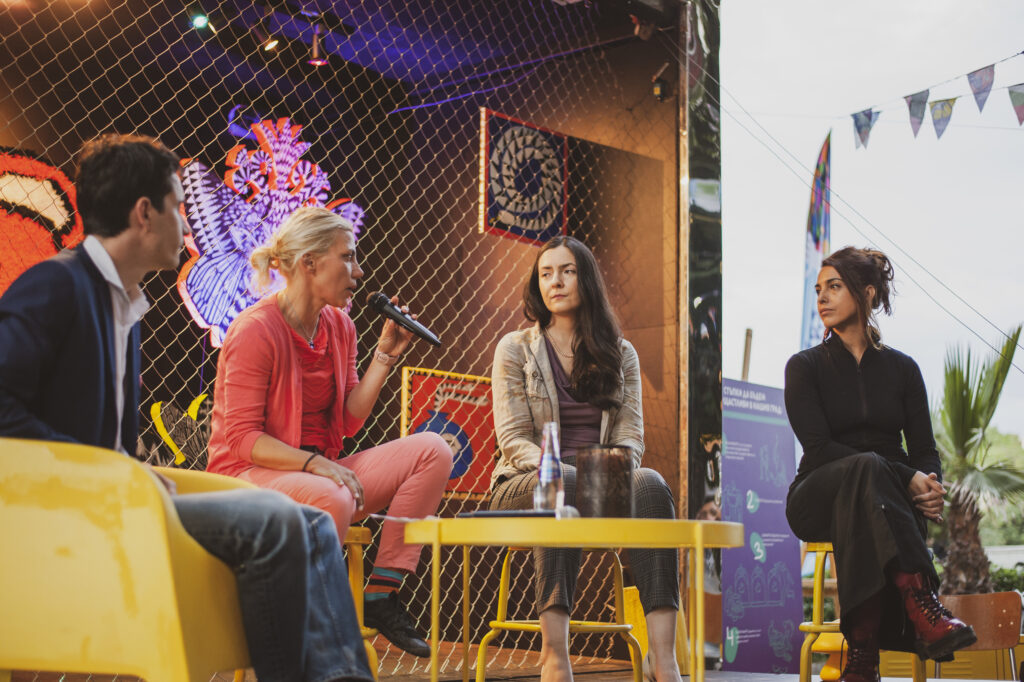
Why did you become a placemaker?
In 2016, I found myself reflecting on the impact of my work as the campaign manager for the Global NowWeMOVE campaign, a campaign with the ambitious aim of getting 100 million people active by 2020, under the auspices of the International Sport and Culture Association. Despite the campaign’s success – seen in the millions of people motivated to move, thousands of events organized, and a strong network of +40 countries – we were still witnessing a steady decrease in physical activity levels overall.
This realization led me to question the efficacy of our approach. We were successful in delivering our message and motivating people, we were successful in organizing thousands of free events, and we were successful in nudging people to start thinking about physical activity but it seemed that without linking our campaign to the enhancement of public spaces and the environment, we were unlikely to effect long-term changes in people’s behaviours and attitudes towards physical activity.
This understanding marked the beginning of a new journey for me, where I sought to discover how public spaces and improving them could also improve and support the achievement of the main goal – getting people active – not one time but for a lifetime.
I came across Project for Public Spaces and, drawing from their resources, developed the concept of TheSpot. Its aim was to reimagine and re-create public spaces so they are more inviting for young people to spend time at and be active. The project brought together 10 municipalities, 10 youth organizations, and 10 communities to co-create 10 Spots. In 2017, I delved deeper into understanding placemaking, its principles and applications. The same year we also organized the first placemaking symposium in Bulgaria, featuring Jeroen Laven back then partner in Stipo (who now works for the city of The Hague) as our first professional placemaking expert. And that was that – the start.
We continued working on the national level by developing a steady network of organizations and experts working in placemaking. In 2018 we also held the first national conference Placemaking Connected in Plovdiv, featuring what is now the Placemaking Europe board – Levente Polyak, Vivian Dumpa, Fredrik Lindstal, Jeroen Laven, Ramon Marades, and of course myself. Since then my journey of learning, practising, and spreading placemaking has been ongoing. Long story short – just recently, maybe a year ago, I gained the confidence to call myself a placemaker – as being a placemaker is not about the theory, you know, is about the practice.
What is your favourite city and why/what can we learn from it?
I would say, New York. It is a cliche, maybe, but New York showcases that despite being huge, populated, and with many challenges – change is possible if there is a will. And of course – Plovdiv – my hometown, although I feel that the city suffers from bad leadership but still in a very resilient way manages to survive. A lot of my motivation and work as a placemaker is to support my city to become again a city for people.
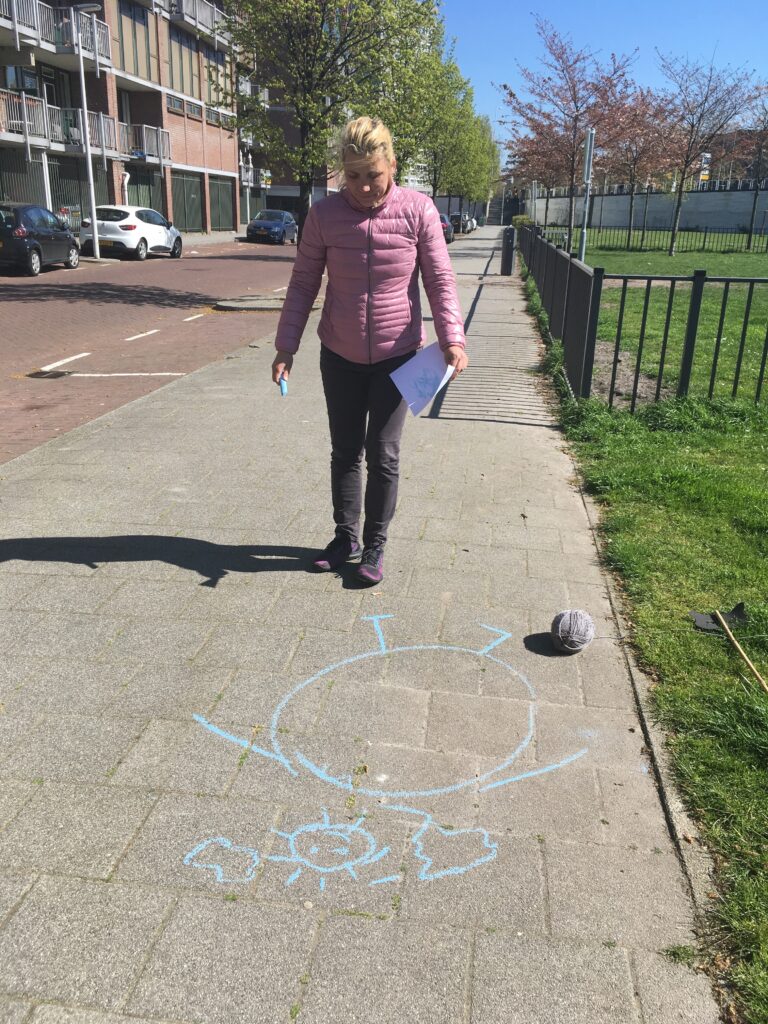
You are the founder of BG Be Active. Why did you start it and how did you become focused on increasing activity levels through placemaking?
When I was growing up as a young ambitious woman I spent many years studying, striving, attending internships, and pursuing several degrees. I worked hard and tirelessly to follow a path I had assigned for myself. At one point, I ended up in a very high position as a director of marketing and sales in a large Sofia-based corporation. I had achieved, what I presumed back then, success, but at this point, all work and no play type of life had an impact on my health. In my thirties I got diagnosed with a herniated disc – a very painful and tedious experience. I was losing strength, and I was experiencing tremendous pain that was preventing me from working. I sought various solutions and as an operation was not an option I decided to take the long path to recovery through rehabilitation. I quit my job, returned to Plovdiv, and began a new journey of recovery of the body but also the mind. During that year, I paid a lot of attention to myself, my health, where I am, what I wanted to do, and what I would like to do for work.
Finding answers was not easy, but eventually I knew that I would love to work in the health and wellbeing sector with a focus on health-enhancing physical activity. I got certified as a group fitness trainer, and practised as a trainer for two years. Then I founded WOW Gym, together with my partner – Kosta, and I also founded BG Be Active Association as the vehicle to support the change I wanted to see in Plovdiv and Bulgaria.
BG Be Active, is a non-governmental organization which promotes positive change in society. It works with a network of dozens of organizations, activists, and volunteers, reaching out to local communities in various places. The association has established partnerships with national and international institutions such as the Ministry of Education and Science, the Ministry of Youth and Sports, and the Ministry of Environment and Water. BGBA works closely with a variety of national and international organizations, and partners with Placemaking Europe, International Association for Sports and Culture Denmark, and now with Parkly. BGBA is an official partner of the New European Bauhaus and World Urban Campaign.
The association was founded in 2011, and during its existence has implemented a number of successful projects aiming at positive change in society. Over the years, the association has coordinated many large-scale national events MOVEWeek, No Elevators Day, Open Streets Day, and “School Sports Day”. One of the most important programs of BGBA is “_The Spot Bulgaria” program, which aims to improve the urban environment. Through the program, BGBA invests in local communities and supports their wishes and dreams of better places.
Do you see potential in solutions like Parky for developing urban environments?Yes, especially in the settings of my country and other countries in the region. In many countries utilizing parking spaces has become an easy-to-implement solution to getting back streets and cities to people, but unfortunately in our region removing parking spots is closer to a capital offence. The joke aside, we believe that Parkly is a great way to communicate about the potential of public places with diverse audiences – municipality officials, community, drivers, and shop owners, in addition to being a functional and beautiful public furniture with a touch. I am very happy to share that we have been working hard to have our first Parkly installations in three Bulgarian cities already, so stay tuned.
What is the most important topic at the moment for cities in Bulgaria in terms of developing them towards greener, healthier and social cities?
Oh wow, where to start…? I think we definitely need to invest the most time in working together. What do I mean by that? With “we” I mean that we – the civil society sector, the municipal officials, communities, and experts, need to find that common language, beyond politics, and business with a focus on people. Only by working together and utilizing our strengths and expertise, can we move into the direction of co-creating our cities as greener, healthier, and more social.
We have also identified that there is more need to engage the community in urban planning decisions to ensure social inclusivity. Again we work on this problem with our projects also: _The Spot, Active Neighborhoods, and Volunteering for an Impact.
There are other topics too: improving and expanding our urban green spaces is a critical topic for all of our cities. Now with our new partnership with Parkly, we will start showcasing possible solutions of micro-greening of our streets, plazas, and parking lots.
Waste management and recycling is also a crucial topic and BG Be Active works on that one with its national campaign “I want to be useful recycle me” and its international project – Sport #WithoutWaste. Many Bulgarian cities, including mine – Plovdiv, also struggle with air pollution due to factors such as heavy traffic, coal heating, and industrial pollution.
Another topic is how revitalizing disused or underused urban areas can contribute to healthier and greener cities. In our case through the placemaking for active recreation approach, we focus on revitalizing public spaces into places for leisure, exercise, dance, and social gatherings.
Dream big! What does an ideal future city look and feel like?
Safe, litter-free, light, functional, friendly, green, and open, truly open to all varieties of cultures, people, needs, and dreams.
Read more about BGBA’s international projects:
